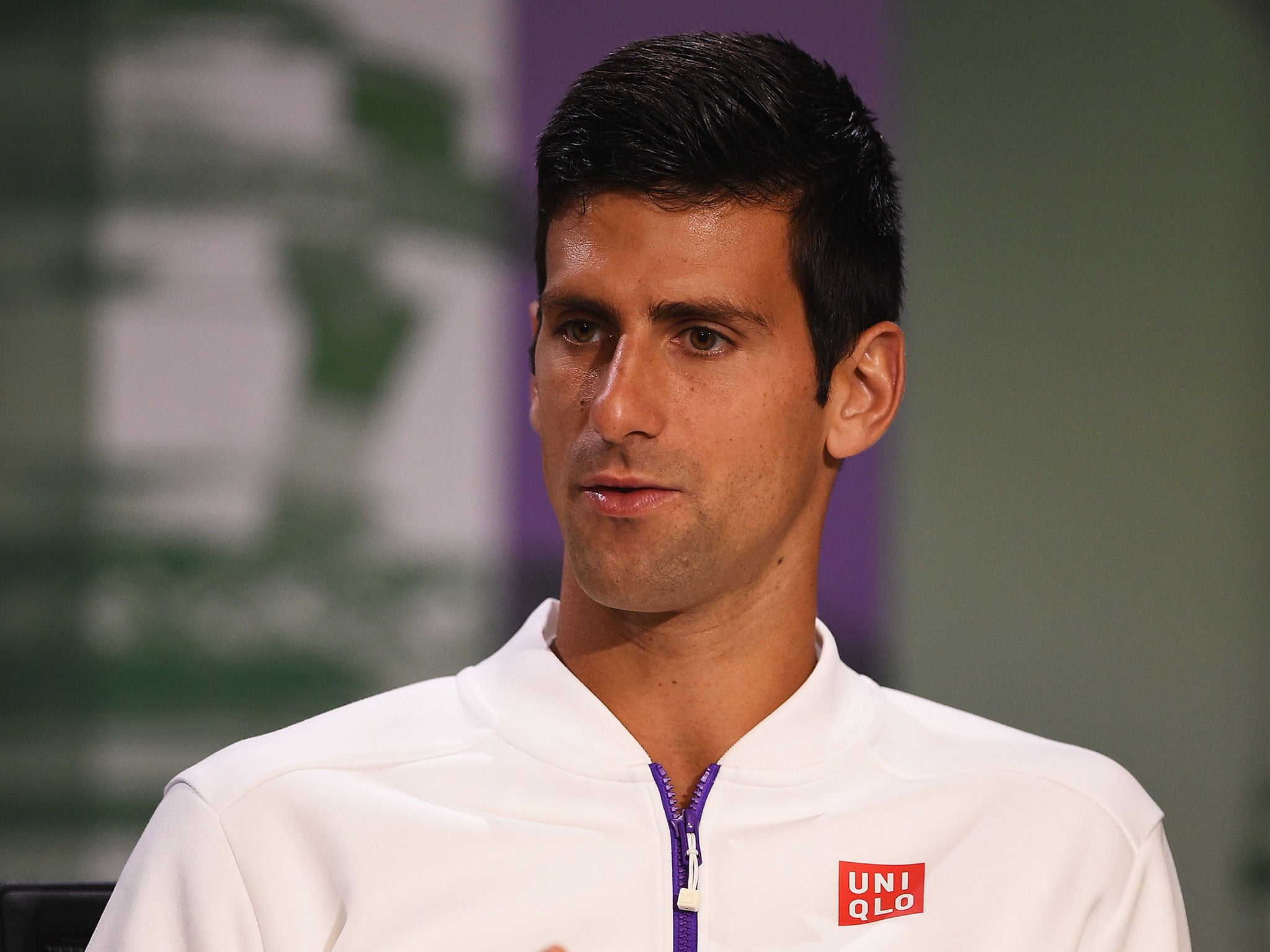Wimbledon 2015 - Novak Djokovic: yes, I communicate with Boris Becker, but you can't call it cheating
Defending champion forced to deny allegations

Your support helps us to tell the story
From reproductive rights to climate change to Big Tech, The Independent is on the ground when the story is developing. Whether it's investigating the financials of Elon Musk's pro-Trump PAC or producing our latest documentary, 'The A Word', which shines a light on the American women fighting for reproductive rights, we know how important it is to parse out the facts from the messaging.
At such a critical moment in US history, we need reporters on the ground. Your donation allows us to keep sending journalists to speak to both sides of the story.
The Independent is trusted by Americans across the entire political spectrum. And unlike many other quality news outlets, we choose not to lock Americans out of our reporting and analysis with paywalls. We believe quality journalism should be available to everyone, paid for by those who can afford it.
Your support makes all the difference.Novak Djokovic will play the opening match on Centre Court here this afternoon, but as he takes on Philipp Kohlschreiber the defending champion’s coach, Boris Becker, will be just as much a focus of attention.
On the eve of the Wimbledon Championships, Djokovic was yesterday forced to deny that he and Becker have been cheating after the German admitted communicating with his player during matches.
Coaching from the sidelines is not allowed in tennis, but Becker admitted in an interview on BBC Radio 5 Live that there were ways in which he was able to convey messages to his player. “There are moments when he looks up and he needs assurance that what he is doing is right,” Becker said. “And then we have our ways about it to tell him it’s good or tell him it’s bad. And then it’s up to him to change it.”
While very few other sports attempt to prevent communications between competitors and their coaches, the guidelines in tennis are very clear. The Grand Slam Rulebook, which governs play at the sport’s four biggest events, states: “Players shall not receive coaching during a match (including the warm-up). Communications of any kind, audible or visible, between a player and a coach may be construed as coaching.”
However, Djokovic insisted: “I don’t think that we’re cheating. I don’t think that’s how you can call it. There are special ways of, I would say, communication. As he [Becker] mentioned, the way you look at each other, the way you feel your [player] box, and [your] box feels what you’re going through on the court – I think that’s something that just gives you that reassurance, gives you that confidence.
“It’s not necessary that he tells me where to serve or to which side of the opponent’s court I have to play, because that doesn’t happen. But it’s more of an encouragement, and more of a support and reassurance.”
He added: “We can’t pretend that’s not happening in tennis. Of course, there’s situations when it happens, and not just with the top players, with everybody. This is a very competitive sport. You’re alone on the court.
“Of course, there are certain rules. But there are also times when the team of the player communicates with the player when he gets to go and take the towel in the corner, which is closer to the box, or other ways. I think it’s all fine as long as it’s not regular.”
Grand Slam tournaments have a penalty procedure in place for any violations of the coaching rules. A first offence is followed by a warning, a second offence by the deduction of a point and all subsequent offences by the deduction of a game. Ultimately, a player could be defaulted.
In the last five years 24 fines have been issued to male players at Grand Slam events for on-court coaching. Djokovic has been fined twice – at the 2011 Australian Open and 2013 US Open – but both occasions were before Becker joined his coaching team.
Rafael Nadal has also been fined twice for coaching over the same period. The Spaniard received the biggest coaching fine to be issued since 2010 when he was penalised $4,000 at last year’s Australian Open. Tomas Berdych, David Ferrer and Richard Gasquet are among those who have also fallen foul of the rules.
Many within the sport view the rules as antiquated and unnecessary.
On the women’s tour players are allowed to call their coaches on to court once in every set, but coaching from the sidelines is not permitted in other circumstances.
The Swiss teenager Belinda Bencic was warned for coaching during her victory over Britain’s Jo Konta on her way to winning her first WTA Tour title at Eastbourne last week.
Join our commenting forum
Join thought-provoking conversations, follow other Independent readers and see their replies
Comments